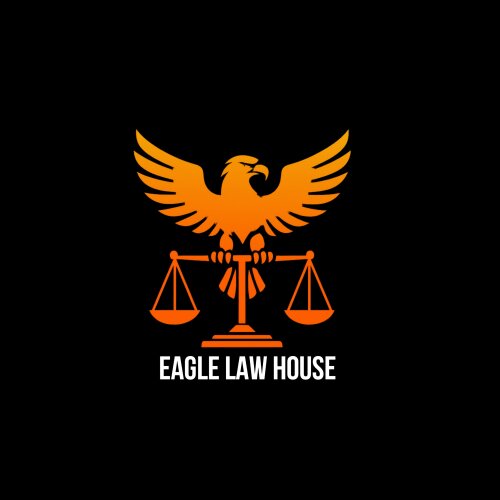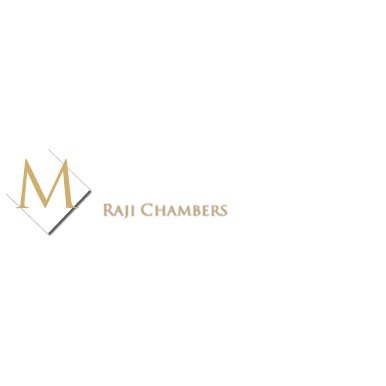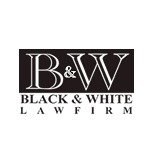Best Sanctions & Export Controls Lawyers in Nigeria
Share your needs with us, get contacted by law firms.
Free. Takes 2 min.
Or refine your search by selecting a city:
List of the best lawyers in Nigeria
Legal guides written by Adeola Oyinlade & Co:
- Procedure and Requirements for Work Permit and Visas in Nigeria
- The Step-By-Step Procedure of How to Apply for Microfinance Bank License Online in Nigeria
- How to Ensure the Smooth Recognition and Enforcement of Foreign Judgments in Nigeria
About Sanctions & Export Controls Law in Nigeria
Sanctions and export controls are legal mechanisms that regulate and sometimes restrict international trade, financial transactions, and the movement of goods and services. In Nigeria, these laws are implemented to comply with United Nations Security Council resolutions, regional commitments, and the country's own national interests. Sanctions can target specific countries, entities, or individuals, and can include arms embargoes, asset freezes, and trade restrictions. Export controls are regulatory frameworks governing the export or transfer of certain goods, technology, and services that might pose risks to national security or international peace.
Why You May Need a Lawyer
Navigating sanctions and export control regimes can be complex for both individuals and businesses operating in or with Nigeria. Legal assistance may be required in a variety of situations, such as:
- Ensuring compliance with Nigerian and international sanctions regulations before engaging in cross-border trade
- Defending against allegations or investigations related to sanctions violations
- Advising on the correct classification and licensing for dual-use goods, technology, or military items
- Assisting with the release of assets frozen under sanctions
- Challenging listings or designations by Nigerian regulatory bodies
- Responding to changes in the global sanctions landscape that might affect business operations
- Mitigating risks associated with inadvertently dealing with sanctioned individuals or entities
- Guiding foreign investors or partners on compliance expectations in Nigeria
Local Laws Overview
Nigeria’s legal framework for sanctions and export controls is shaped by multiple statutes, regulations, and government agencies. Key aspects include:
- National Security and Anti-Terrorism Laws: The Terrorism (Prevention) Act 2011 and its amendments empower Nigerian authorities to freeze assets and prohibit transactions with designated individuals or groups associated with terrorism.
- Customs and Excise Management: The Nigerian Customs Service oversees the import and export of goods, implementing restrictions on firearms, ammunition, dual-use goods, and other sensitive items.
- Central Bank of Nigeria (CBN): The CBN issues guidelines and circulars to financial institutions regarding transactions linked to sanctioned entities and reporting suspicious activity.
- International Obligations: Nigeria is a member of the United Nations, African Union, and ECOWAS, committing to implement sanctions regimes decided by these bodies.
- Export Licensing: The licensing or prohibition of certain items for export is managed under the relevant regulations, such as the Export Prohibition List and specific guidelines for hazardous materials.
It is important to recognize that Nigerian regulations can work alongside or in addition to foreign laws, especially for international businesses or those interacting with US, EU, or UK partners.
Frequently Asked Questions
What are sanctions?
Sanctions are legally binding measures that restrict certain trade activities, financial transactions, or dealings with specific persons, entities, or countries to promote security or uphold international commitments.
Who enforces sanctions and export controls in Nigeria?
Enforcement involves multiple agencies, including the Nigerian Customs Service, Central Bank of Nigeria, Nigerian Financial Intelligence Unit, and law enforcement authorities under relevant legal frameworks.
What are dual-use goods?
Dual-use goods are items, software, or technology that can be used for both civilian and military purposes. Exporting these items often requires special licenses or regulatory permission.
Can a business be penalized for unknowingly violating sanctions?
Yes, lack of awareness does not absolve a business from liability. It is the responsibility of businesses to conduct due diligence and comply with all relevant sanctions and export control laws.
What are the penalties for breaching export control laws in Nigeria?
Penalties can include fines, seizure of goods, loss of licenses, imprisonment, and reputational damage. The severity depends on the nature and scale of the violation.
What should I do if my assets are frozen by Nigerian authorities?
Seek immediate legal advice. A lawyer can help assess your situation, engage with authorities, and determine the best way to challenge or comply with asset-freezing measures.
How can companies ensure compliance with sanctions regulations?
Develop and implement robust compliance programs, conduct thorough customer and supplier due diligence, regularly review international sanctions lists, and seek legal guidance when entering new markets.
Are there exemptions to export controls for humanitarian aid?
Some exemptions may apply for humanitarian aid, but these often require case-by-case approval from regulatory authorities and adherence to strict conditions.
Does Nigeria recognize foreign sanctions?
While Nigerian law primarily reflects national and international (UN, AU, ECOWAS) sanctions, it may also consider the extraterritorial effect of certain foreign sanctions, especially in financial and commercial transactions.
How do I apply for an export license in Nigeria?
Applications are typically submitted to the Nigerian Export Promotion Council or the relevant regulatory body governing the goods in question. Requirements vary depending on the product and destination.
Additional Resources
If you need further information or support, these bodies can provide guidance:
- Nigerian Export Promotion Council (NEPC): Provides advice and processes export license applications for permissible goods.
- Nigerian Customs Service: Administers customs laws and enforces import-export controls.
- Central Bank of Nigeria (CBN): Issues circulars and compliance instructions to financial institutions regarding sanctions.
- Nigerian Financial Intelligence Unit (NFIU): Tackles suspicious financial activities and enforces anti-money laundering measures.
- Federal Ministry of Justice: Oversees legal policy and handles challenges to regulatory actions.
- United Nations Office on Drugs and Crime (UNODC) - Nigeria Office: Supports local implementation and awareness of international sanctions measures.
Next Steps
If you are dealing with issues connected to sanctions or export controls in Nigeria, here is how you can proceed:
- Identify the specific nature of your concern, such as intended exports, frozen assets, or regulatory inquiries.
- Gather all relevant documentation, including licenses, contracts, correspondence, and filings.
- Consult a qualified legal practitioner with expertise in sanctions and export control laws in Nigeria.
- Stay informed on updates to relevant laws and international obligations that may affect your situation.
- If necessary, submit queries or requests to the appropriate governmental body for procedural guidance.
- Implement risk management and compliance protocols to reduce exposure to future legal liabilities.
Professional legal advice is vital in this complex and heavily regulated area. An experienced sanctions and export controls lawyer can help you navigate the requirements and protect your interests.
Lawzana helps you find the best lawyers and law firms in Nigeria through a curated and pre-screened list of qualified legal professionals. Our platform offers rankings and detailed profiles of attorneys and law firms, allowing you to compare based on practice areas, including Sanctions & Export Controls, experience, and client feedback.
Each profile includes a description of the firm's areas of practice, client reviews, team members and partners, year of establishment, spoken languages, office locations, contact information, social media presence, and any published articles or resources. Most firms on our platform speak English and are experienced in both local and international legal matters.
Get a quote from top-rated law firms in Nigeria — quickly, securely, and without unnecessary hassle.
Disclaimer:
The information provided on this page is for general informational purposes only and does not constitute legal advice. While we strive to ensure the accuracy and relevance of the content, legal information may change over time, and interpretations of the law can vary. You should always consult with a qualified legal professional for advice specific to your situation.
We disclaim all liability for actions taken or not taken based on the content of this page. If you believe any information is incorrect or outdated, please contact us, and we will review and update it where appropriate.
Browse sanctions & export controls law firms by city in Nigeria
Refine your search by selecting a city.

















